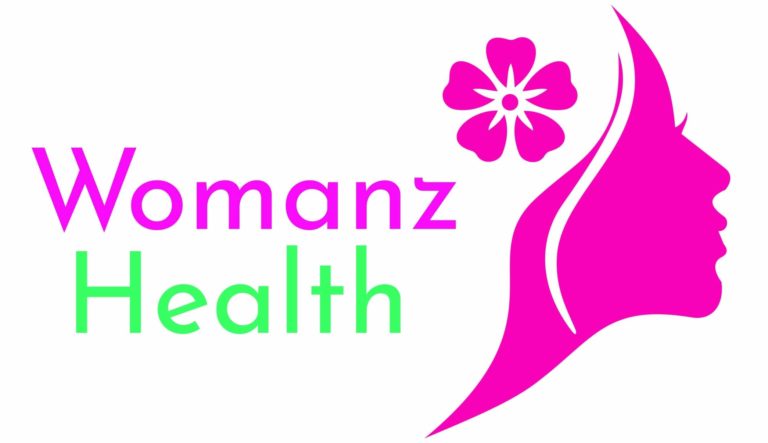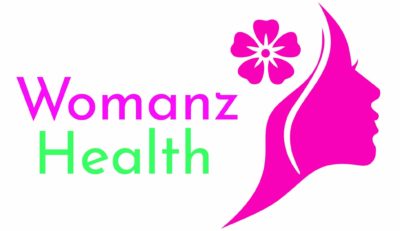Welcome to Womanz Health
High Tech Maternity Care with Best Maternity Doctors in Mumbai
Best prenatal and postnatal pregnancy care by Top Gynecologists in Mumbai
Let's Schedule Your Appointment
Why Choose Us
- Hightech Maternity Hospitals in Mumbai
- Full Safety Precautions to Ensure Safe Delivery of your child
- Prenatal & Post Natal Pregnancy Care
- Neo Natal Care
- Top Gynaecologist in India


Our trusted Patient
"Best Healthcare Professionals to Treat u at Most Facilitated Centres with Ultramodern Technology And Personalized Attention & Care u Deserve"

Most Experienced Doctors Across India

Personalized Counselling Available

Quality Treatment at Affordable Price

EMI Facility Available
Best Treatment
Why Womanz Health?
We have experience of over 35 years in healthcare as Top Maternity Hospital in Mumbai with Best Maternity Doctors in Mumbai. All our doctors are highly qualified & carry rich experience With women's health you can feel in safe hands.
Blend of Technology & Human Care is our expertise. All our centers are equipped with latest technology & updated machines At the same time, we Ensure personalized counseling & care.
Best of Services@Lowest Cost has been our Forte We have EMI facilities too.
Patients comfort & hassle free procedures is what we are committed to. We Ensure all Safety norms are taken care of & strive to provide the easiest approach.

Testimonial
Success Stories?
Services We Offer
- Registration /booking a delivery & doctor
- Normal vaginal delivery
- Painless Delivery/ labour /birthing
- High-risk pregnancy Medical complications
- Caesarean Section LSCS
- Delivery with Water Birth
- Counselling for Pregnancy /Delivery /post-delivery
- Tests & Vaccines During Pregnancy
We are here for all of your emergency needs during these trying times. We would be delighted to assist you in all of your emergency needs, as we have experience in gynaecological fields. We also ensure a completely safe environment and take all necessary precautions in this day and age.
In India, the majority of women prefer a natural birth without the use of painkillers. We can also administer epidural analgesia if necessary.
Some patients prefer to have their babies at home in a natural setting. This could be a little dangerous. However, if you prefer, we can put you in touch with these experts.
This is becoming increasingly popular among some patients. We can put you in touch with these doctors who specialise in waterbirth. During the Covidpandemic, however, it is best to avoid water birth.
ur doctors have a strong desire to deliver you normally. Many doctors use partograms to manage their patients’ deliveries. They also use intrapartum cardiotocography machines to monitor the foetal heart rate. Difficult deliveries are always given a fair amount of time in the womb. Vacuum/forceps may be used if necessary. The Cesarean rate can be kept to less than 20% -30% in this way.
Our doctors usually use the international Robson’s criteria to classify the need for a caesarean section. As a result, the LSCS rate is kept within acceptable bounds. However, no risk should be taken with the mother or the child during delivery. The delivery route is solely determined by the mother’s and child’s best interests and desired outcomes.
Two Tetanus toxoid injections are given to the patient. The first dose is Tetanus toxoid, reduced diphtheria toxoid, and acellular pertussis (Tdap) vaccine, and the second dose is Tetanus toxoid, reduced diphtheria toxoid, and acellular pertussis (Tdap) vaccine. During flu season, the patient may also be given an influenza vaccine.
Most couples avoid pregnancy for the first two to three years by using simple methods like coitus interruptus, condoms, avoiding sex near ovulation, or oral contraceptive pills. Emergency contraception can be used on occasion.
When a couple wants to start a family, they try simple methods like having sex around the time of ovulation (using the calendar method) or using methods to pinpoint ovulation (the release of an egg during the fertile period), such as a urine- basedLhdetection ovulation kit or follicular monitoring with vaginal ultrasound. In just over a year, nearly 90% of couples are able to conceive using this method. Only about 10% of couples are successful in conceiving a child. These ten percent of couples are considered infertile, and further research is conducted on them. Before conceiving, the couple should have blood tests, thalassemia tests, and rubella tests performed so that they can take preventive measures.
Patients who don’t get their period have a high chance of becoming pregnant. When the pregnancy is more than 5 to 6 weeks, a pregnancy test on the first sample of urine, a blood test called serum B HCG test, or an ultrasound can confirm the pregnancy. An early ultrasound can also determine whether the pregnancy is ectopic (in the tube), multiple (twins or triplets), or not viable (miscarriage)
You can see our gynaecologist, who will confirm your pregnancy, calculate your EDD, and register your name with a hospital for delivery. Based on your home address, insurance coverage limits, ability to pay, sense of safety, accreditation (NABH, JCI, Manyata), and comfort (past history) with a particular hospital, you can deliver in a small private hospital, a medium sized specialty hospital, or a large corporate hospital.
Investigations to be carried out while pregnant: Weight, BMI, Blood pressure, Hemoglobin, CBC, ESR, Blood Group, blood sugar, urine routine (for pus cells, blood, sugars, and proteins), Bleeding Time, Clotting Time, VDRL, HIV, HCV, HbSAg, TSH, Rubella antibodies, Vitamin D, Vit B 12, double marker /quadruple markers, ultrasound (around 11-12 weeks, 16-18 weeks, 28-32 weeks, and 34-36 weeks) Many couples have recently undergone preconceptional genetic screening, also known as carrier screening.If there is a family history of an abnormal child or a history of consanguineous marriage, this is especially important. A COVID PCR test is now required 5 days prior to planning delivery/induction of labor/LSCS. Please be aware that in India, sex detection and sex selection are both illegal and punishable by fines and imprisonment for both the doctor and the patients.
Foodstuffs and pharmaceuticals During the first three months of pregnancy, the patient is given folic acid orally. During the next six months of her pregnancy, she will be given iron and calcium tablets. She is also given nutritional supplements that contain proteins, carbohydrates, vitamins, minerals, and other nutrients to meet her and the foetus; needs. She must sleep for at least 10 hours per day. Sleeping in the left lateral position is ideal.
Tests to determine the health of the foetus. In the third trimester, the women are instructed to begin keeping a foetal movement count. Regular non-stress testing combined with an ultrasound colour doppler examination once a week can effectively monitor the pregnancy in high-risk patients.
Exercise prior to conception It’s best to do some light exercises every day, such as walking for 30 minutes. Prenatal classes are also available. Breathing exercises are taught in these classes. These are extremely beneficial in reducing pain and discomfort during labour and delivery. They also aid in the likelihood of a normal delivery.
Midwives: Many patients want to use the services of midwives, who are nurses who specialise in childbirth. We can provide you with a midwife if you require one. She’ll be present for the duration of the delivery. The fees for the midwife will be in addition to the gynaecological fees.
Breast-feeding: We believe that breast-feeding is the best option. Breastfeeding and bonding with the newborn baby are encouraged for the mother. Breastfeeding should be continued for at least six months and up to two years. The child will be protected from infections and illness as a result of this.
Neonatal care is important. We have expert paediatricians on hand during childbirth and 24 hours a day, seven days a week afterward. The child is given proper neonatal care. All vaccinations are administered in accordance with the Indian Association of Pediatricians’ recommendations.
FAQ's
Frequently Asked Questions
Talk with your ob-gyn or other health care professional about your birth plan. In most cases, the timing and method of delivery (vaginal birth or cesarean birth) do not need to be changed. Women who are sick probably do not need a cesarean birth.
- Undercooked meat and fish
- High mercury fish
- Processed meat
- Raw eggs
- Caffeine
- Unpasteurised cheese and milk
- Junk food
- Missed period
- Swollen breasts
- Mood swings
- Nausea and vomiting
- Spotting and cramping
- Fatigue
- Food cravings
- Increased basal body temperature
- Headaches and dizziness
- The baby drops
- Urge to pee
- The cervix dilates
- Cramps and back pain
- You feel extra tired
- Dairy products
- Legumes
- Berries
- Sweet Potatoes
- Eggs
- Salmon
- Green leafy vegetables
- Fish liver oil
- Lean meat
- Whole grains
- Avocados
- Dry fruits
- Fruits
- Lots of water and juices
Know more about Woman’z Health
Womanz healthcare encompasses a number of things, starting with regular, annual pelvic exams and pap tests, treatment for sexually transmitted diseases, counseling, education, maternity (pre- and post-pregnancy care). Womanz Care can help with all of your women’s needs, whether you’re looking for a family practice doctor to help with your comprehensive women’s healthcare or an OB/GYN specialist for more complicated issues.


